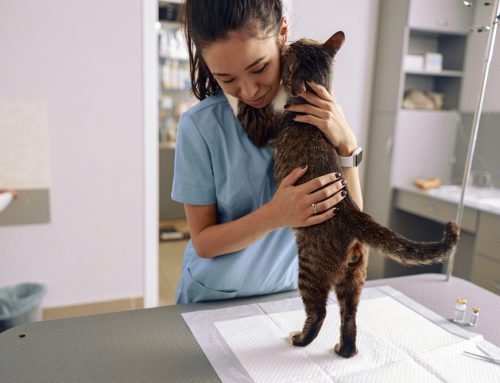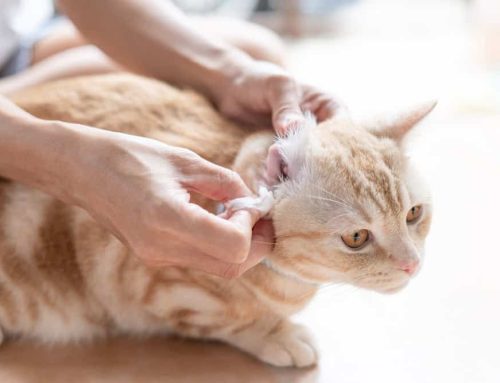Purebred pets offer predictability in terms of appearance and temperament, which can be appealing to many prospective owners. However, purebred pets are often genetically predisposed to certain health conditions because of a lack of genetic diversity. If you want to purchase a purebred pet, research potential breed-related health issues, and choose a reputable breeder who maintains high ethical standards to ensure you get a happy and healthy pet. Our Kauai Veterinary Clinic team shares five common conditions that affect purebred pets to help you make an informed decision when welcoming a new furry family member into your home.
1: Hip dysplasia in large-breed dogs
Hip dysplasia is a genetic condition prevalent in many large-dog breeds, such as German shepherd dogs, Labrador retrievers, and golden retrievers. This condition occurs when the hip joint doesn’t fit properly into the hip socket, leading to pain, arthritis, and difficulty walking. Early hip dysplasia signs include:
- Hind end stiffness after resting
- Difficulty rising from a resting position
- Difficulty navigating stairs and jumping up on and down from surfaces
- Muscle mass loss over the hind end
- Bunny-hopping gait when running
2: Airway disease in brachycephalic pets
Flat-faced (i.e., brachycephalic) pets are irresistibly cute, but their trademark features put them at risk for serious respiratory health conditions. Popular brachycephalic dog breeds include the pug, shih tzu, Pekingese, chow chow, and boxer. Brachycephalic cat breeds include the Persian and exotic shorthair. Brachycephalic pets have an increased risk for many health issues such as skin, ear, and eye problems, dental disease, and obesity. However, the most dangerous condition that often plagues these pets is brachycephalic obstructive airway syndrome (BOAS), a collection of abnormalities that make breathing difficult, including small nasal openings (i.e., stenotic nares), narrow trachea, elongated soft palate, and abnormal laryngeal tissues (i.e., everted laryngeal saccules). Airway swelling from overheating, stress, or exertion can cause a complete breathing obstruction and can be life-threatening.
3: Heart disease in cats and dogs
Heart disease is not exclusive to people. Dogs and cats can also develop various heart conditions, including:
- Hypertrophic cardiomyopathy (HCM) — HCM is the most common feline heart disease and can affect various purebred cat breeds, including Maine coons, ragdolls, and British shorthairs. This condition is characterized by heart muscle thickening, which can lead to heart failure and sudden death.
- Degenerative valvular disease — Degenerative valvular disease is most common in small or toy breeds and is especially common in Cavalier King Charles spaniels and dachshunds. The thickened, abnormal valve causes blood to leak backward against the normal flow. Pets diagnosed with this disease early in life are likely to develop heart failure.
- Dilated cardiomyopathy (DCM) — Some large-breed dogs, such as Doberman pinschers, and boxers are predisposed to DCM, a condition where the heart muscle weakens and enlarges, leading to heart failure.
- Pulmonic stenosis — Pulmonic stenosis is a congenital heart disease caused by a heart defect, which obstructs blood flow from the heart’s right ventricle to the pulmonary artery, and can interfere with blood flow between the heart and the lungs. Among the breeds commonly affected by pulmonic stenosis are bulldogs, Boston terriers, boxers, Jack Russell terriers, Samoyeds, Newfoundlands, and Labrador retrievers.
- Cardiac arrhythmias — An arrhythmia occurs when a pet’s heartbeat does not follow a normal rhythm and may indicate a more serious underlying condition. Brachycephalic breeds are predisposed to the condition, including bulldogs, Lhasa apsos, Pekingese, pugs, Shar-peis, shih tzus, and boxers.
4: Progressive retinal atrophy in dogs
Progressive retinal atrophy (PRA) is an eye condition that causes the retina (i.e., the cell layer that lines the eye’s interior back wall) to degenerate, leading to blindness. PRA is most commonly seen in miniature and toy poodles, cocker spaniels, and Labrador retrievers.
5: Allergies in atopic dogs

Atopic dermatitis—allergic dermatitis—is a chronic inflammatory skin condition caused by an allergic reaction to pollen, dust mites, mold, and other environmental triggers. Certain breeds have a genetic tendency to develop allergies, a condition known as atopy, including golden and Labrador retrievers, pit bull terriers, German shepherd dogs, and English bulldogs. Pets affected by atopic dermatitis may show the following signs:
- Itchiness
- Skin redness
- Recurrent ear infections
- Skin lesions
- Raised pimples or swellings
By understanding common health conditions that can affect purebred pets, you can take proactive steps to protect your pet and enhance their quality of life. If you have recently welcomed a purebred pet into your home or are planning to soon, contact our Kauai Veterinary Clinic team to schedule a wellness exam.










Leave A Comment